You can’t see the house from the street. It is surrounded by a towering wall laced with barbed wire fencing, and it boasts a large, locked, metal door. Once inside, it seems peaceful. There are trees on the lawn, music playing, and rooms full of plush sofas and framed pictures of Jesus.
Then you go upstairs.
Videos by VICE
There, another locked door leads to a room filled with 80 drug addicts. There, the horror stories begin.
“It’s been three months since I’ve seen my family or even gone downstairs,” says one 36-year-old addict, who speaks very quietly in a corner of the room. “If they knew I was telling you these things, they’d beat me.”
Mexican authorities provide very limited treatment for addicts, and almost no residential care, which means families struggling to cope rely almost exclusively on privately-run centers known colloquially as anexos, or annexes. The majority of the inhabitants, who are known as anexados, claim they were taken against their will and face a wide range of abuses — many of them criminal.
‘If they knew I was telling you these things, they’d beat me’
“It was surprising for me when I went to these centers and discovered stories of terror, abuse, mistreatment,” says Carlos Zamudio, an anthropologist who specializes in drugs and addiction. He was the Mexico point person for an Open Society Foundations report, published in March, which detailed accusations of extreme physical, emotional, and sexual abuse at drug rehabilitation centers around Latin America, with an emphasis on Mexico’s anexos.
Zamudio says that for him, the only thing more shocking than the tales he heard from addicts during his research was finding out their only option was to go to another one of these centers, which are sometimes worse.
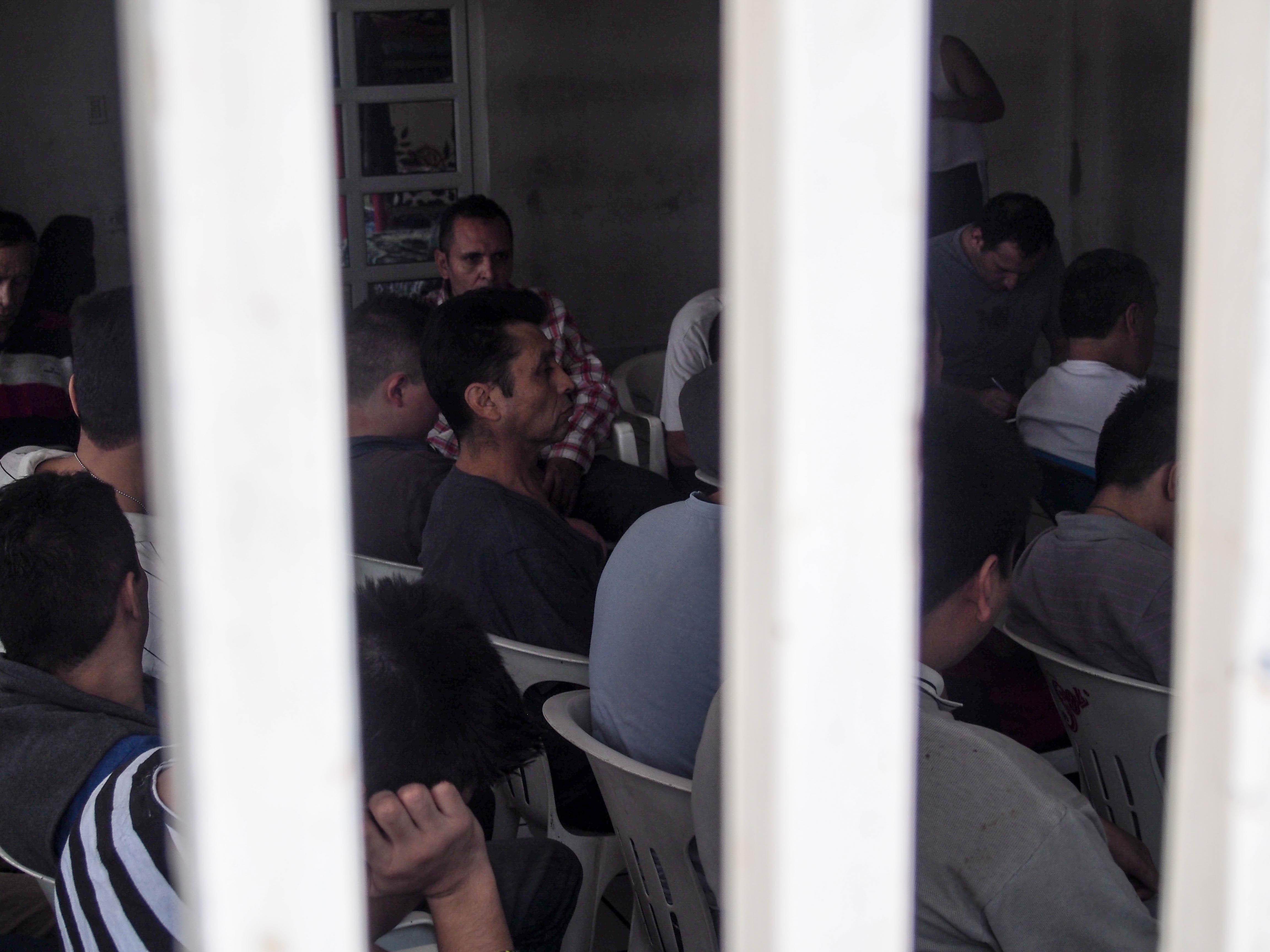
Anexos are owned and run by padrinos — godfathers or sponsors. In the Mexican drug world a padrino, or madrina for a woman, is any former addict who has been able to stay clean. Many padrinos discover that reentering society and finding normal employment is difficult, and some decide their best option is to open their own anexo or get a job in one.
VICE News was given complete access to one such anexo on the condition of maintaining the anonymity of its location, padrinos, workers, and anexados.
Related: Mexico Will Never Win Its War on Drugs — But It’s Going to Keep Fighting Anyway
Behind Locked Doors
We are greeted and taken upstairs through two locked doors by several of the 17 padrinos who run this anexo.
The first room is the enfermería, or the withdrawal room. When an addict arrives at the center, they spend several days in this room as their system cleans out the drugs and/or alcohol, before being thrown into the main room where they will spend a minimum of four months.
The second room is where the 80 inhabitants share a single toilet and spend all their time. They have meetings, eat, and sleep, in the room. “Like sardines,” one says. There are cameras monitoring them 24 hours a day. They are not allowed to leave unless they have a visit, and many have been there close to a year. They aren’t told when they will be released until the day it happens.
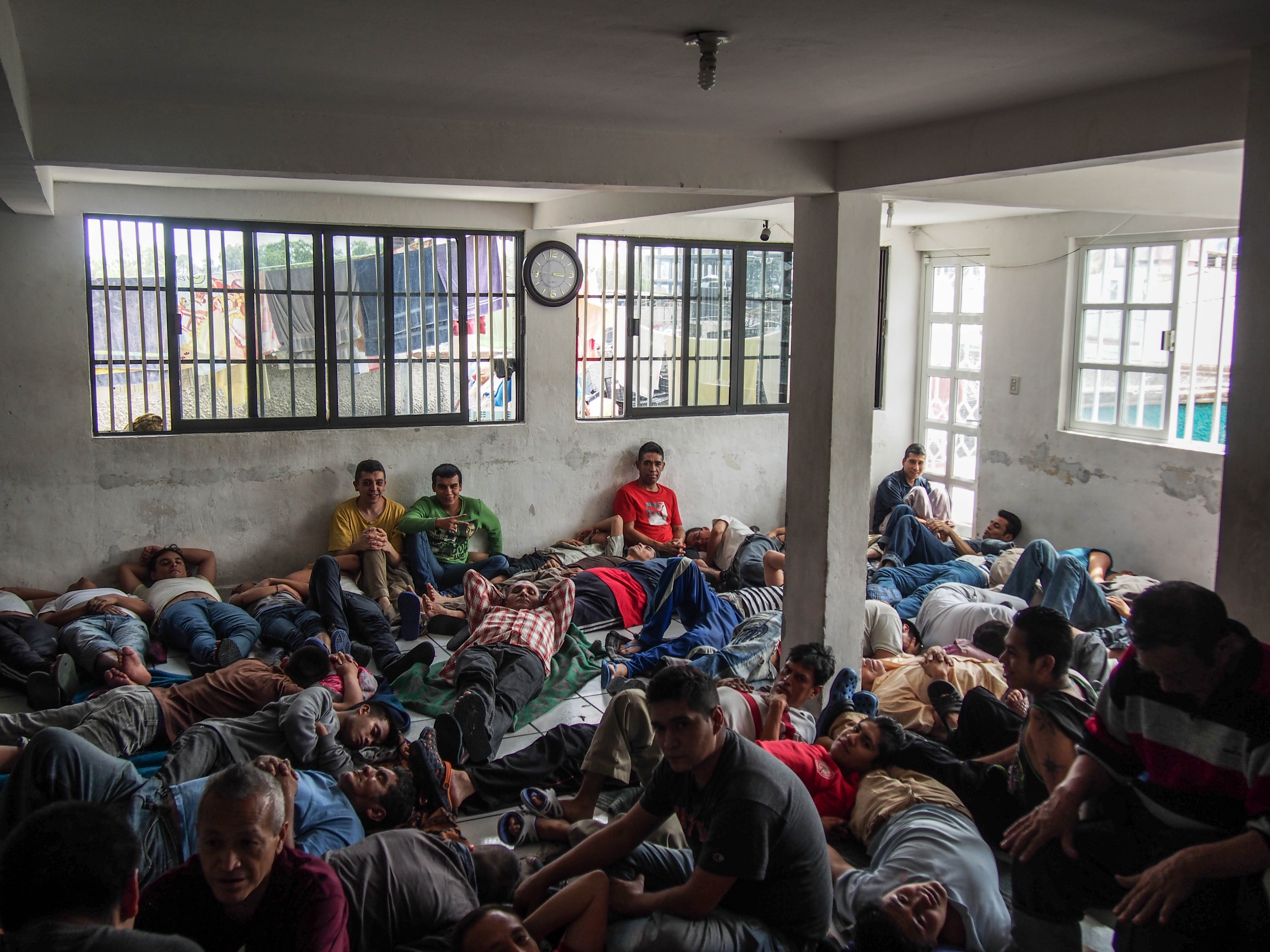
In the facility’s enfermería, VICE News interviews nine addicts who are willing to tell their stories one by one.
Our table is placed directly under a video camera, and a padrino sits on the other side of the room. The addicts mostly recount horror stories from other anexos. They insist this one isn’t as bad. Two of the men ask to speak in English so that the padrino won’t understand what they say about this center. Another alleges similar things in Spanish, as the Padrino yells at him, calling him a liar.
According to several interviewees, when they are allowed to have a visit from a family member they are taken downstairs, where the center has nice furniture and even a bar, stocked with alcohol. Family members are never allowed to see the upstairs. Families are instructed repeatedly that their loved one is a liar, and will say anything to get themselves released from the center. When inhabitants meet with their families they are constantly supervised, and if they say anything about the abuses they face or the squalor of their conditions, they say they know they will be beaten and drugged with downers later.
‘It’s a circle… It’s like they’re giving you a membership or something’
Besides being beaten by several padrinos at once, the anexados identify a variety of common punishments in this anexo. They say that sometimes you can be tied to a column, called a crucifixion. Hands tied behind your back is called a pescadito, or little fish. Another punishment is said to be standing for 24 hours and being forced to crane your neck to look at the camera. One claims that in other anexos this punishment sometimes lasts for as long as three days.
Related: French Addiction Experts Urge Government to Make Overdose Antidote Widely Accessible
While in the room, the addicts must sit through several collective meetings each day with pastors, padrinos, or social workers. The center says it abides by the 12-step program, though anexados complain they are left for hours at time without exercise, or anything else to do, and without emotional support.
“I think they create people that are going to fall into drugs again. You’re gonna stay here your time, but when you leave, you’re gonna fall,” one anexado says. “You don’t do anything here, and when you leave you’re weak — physically, mentally, spiritually.”
This is his eighth time in an anexo. Of the nine interviewees, eight is the lowest any of them has been annexed. One man has been annexed 47 times.
“It’s a circle. They know they’ll have you here for six months, maybe you’ll leave in two months, then you’ll come back. It’s like they’re giving you a membership or something,” he chuckles.
The Sandal Patrol
While we are speaking, screams are suddenly heard outside — a woman is shrieking. The enfermería starts buzzing. In the main room people huddle around the window in the door to watch. Five men enter carrying the woman as she yells “no” repeatedly in long howling bursts. They pull her through the enfermería and toss her in the main room.
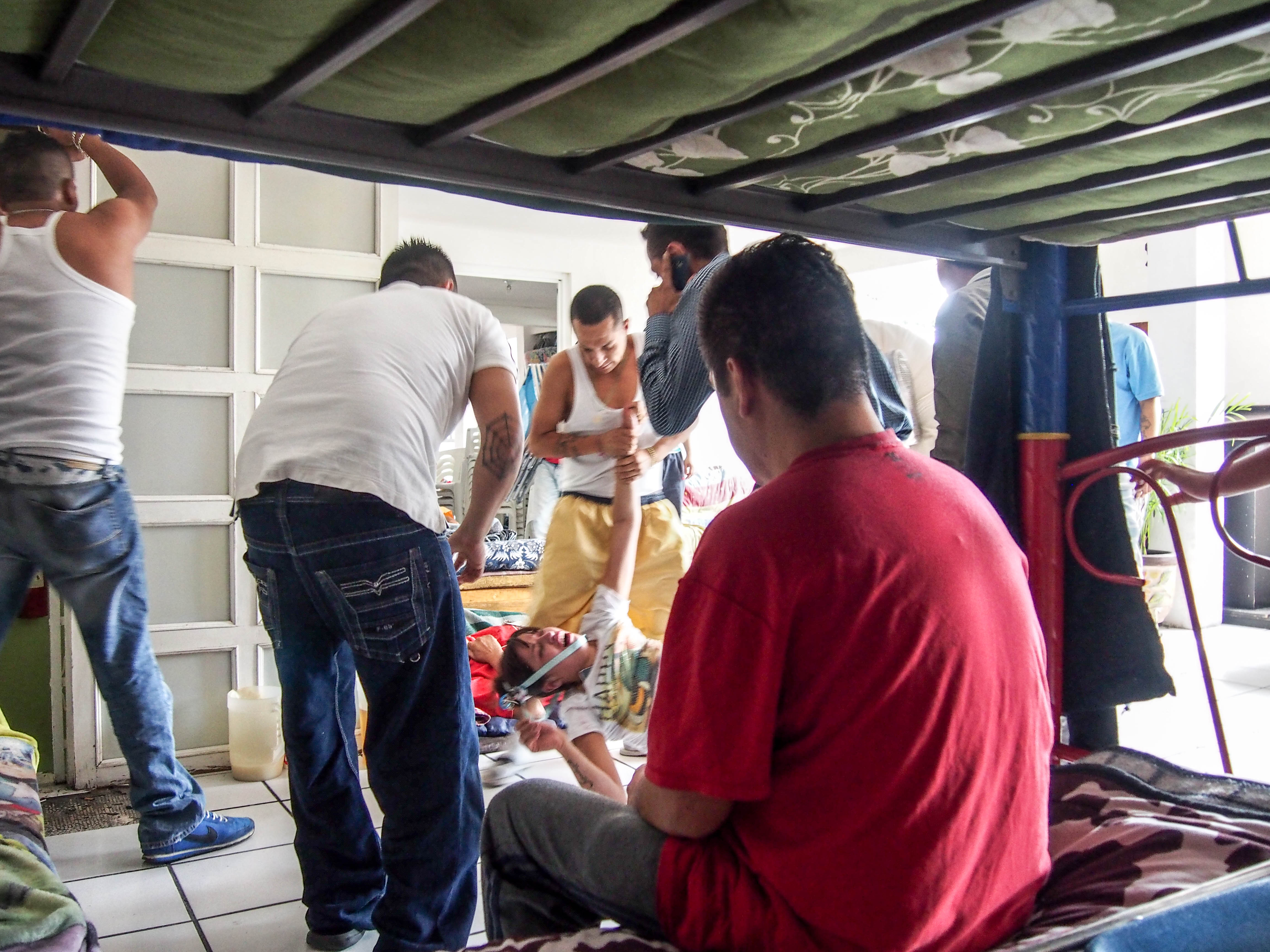
The men are all padrinos or anexados who are close to release, and are gaining favor. These groups are called enchancladora patrols. Enchancladora is a made up word derived from the Mexican word chanclas, which means sandals, and can be translated as “those who put on the sandals.”
When a family or friend has decided someone needs to be sent to an anexo, they tell the padrinos where and when the person can be located, often when they’re asleep. The enchancladora patrol then arrives and forcefully takes the person. If they fight back, they beat them until they are subdued enough to be transported to a truck where they are locked in the back and driven to the anexo.
Related: Why America’s Ongoing Heroin Epidemic May Soon Run Its Course
Once the person is under full control at the center, their shoes are removed and they are given a pair of sandals. These are all they are allowed to wear for the duration of their stay. In the anexo we visit, the “sandals” are mostly pirated Crocs.
The anexado who was talking when the woman arrived said he fought back the first time the sandal patrol came for him, and was left beaten and bruised for his efforts. The last time he went quietly.
Asked if everything was okay after the woman calmed down, one of the padrinos, who was sweating under his white undershirt replies, “Just another day fighting against addiction.”
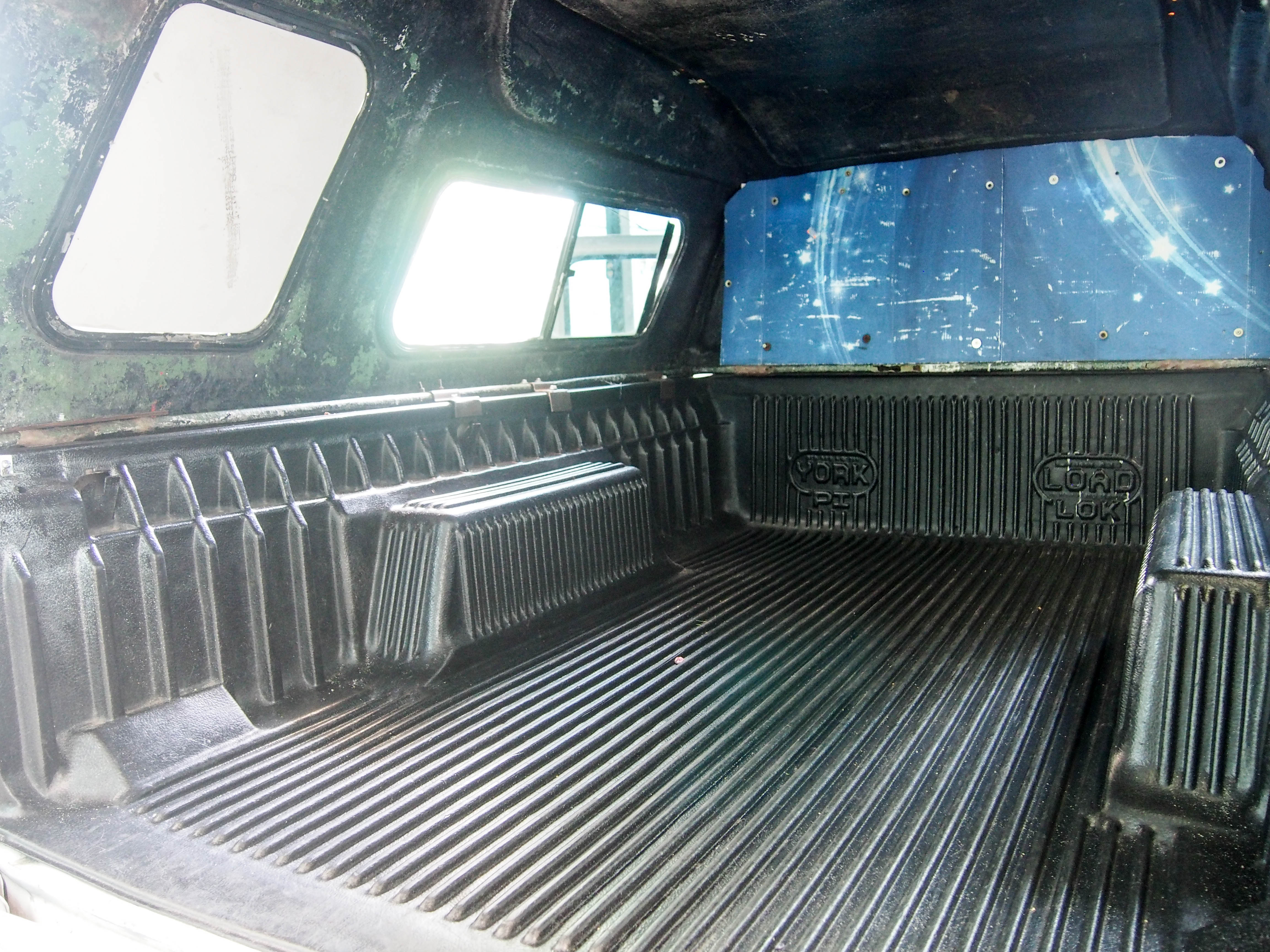
Anexos have existed for decades in Mexico and have long been accused of abuses, but little has been done to stop these.
In 2011, a law promised to improve conditions in rehabilitation centers, but, according to Carlos Zamudio, the anthropologist, it has been of little help. He says the biggest change came the following year with the creation of a special task force that began shutting down centers in Mexico City, but that led many to pack up shop and move just outside the city limits.
The law requires all states to set up similar task forces, but few have. One of the padrinos at the anexo VICE News visited says the center moved out of the capital in 2013 because of the crackdown. He says they hadn’t had any problems since.
Last year, Manuel Mondragón, the head of Mexico’s National Commision Against Addiction (CONADIC) announced a new offensive against abuse in the centers, which he said number about 2,000 across the country. In December, he said inspectors had visited 48 centers in several states and shut down 28 of them. VICE News was unable to confirm how many more centers have been shut down since then.
Related: Medical Marijuana, Decriminalization, and Opium: 2016 Looks Big for Drugs in Mexico
Meanwhile, Mexican President Enrique Peña Nieto has promised a more humane approach for drug users.
“Drug consumption should be attended, primarily as a public health problem,” the president told the special session of the UN General Assembly dedicated to drug policy earlier this month. “Addiction should be attended to with prevention and integrated therapeutic solutions, rather than penal instruments that criminalize consumers, and damage the development of their personality.”
It is unclear whether such promises will translate into real change in the future. In the meantime, the abuses continue.
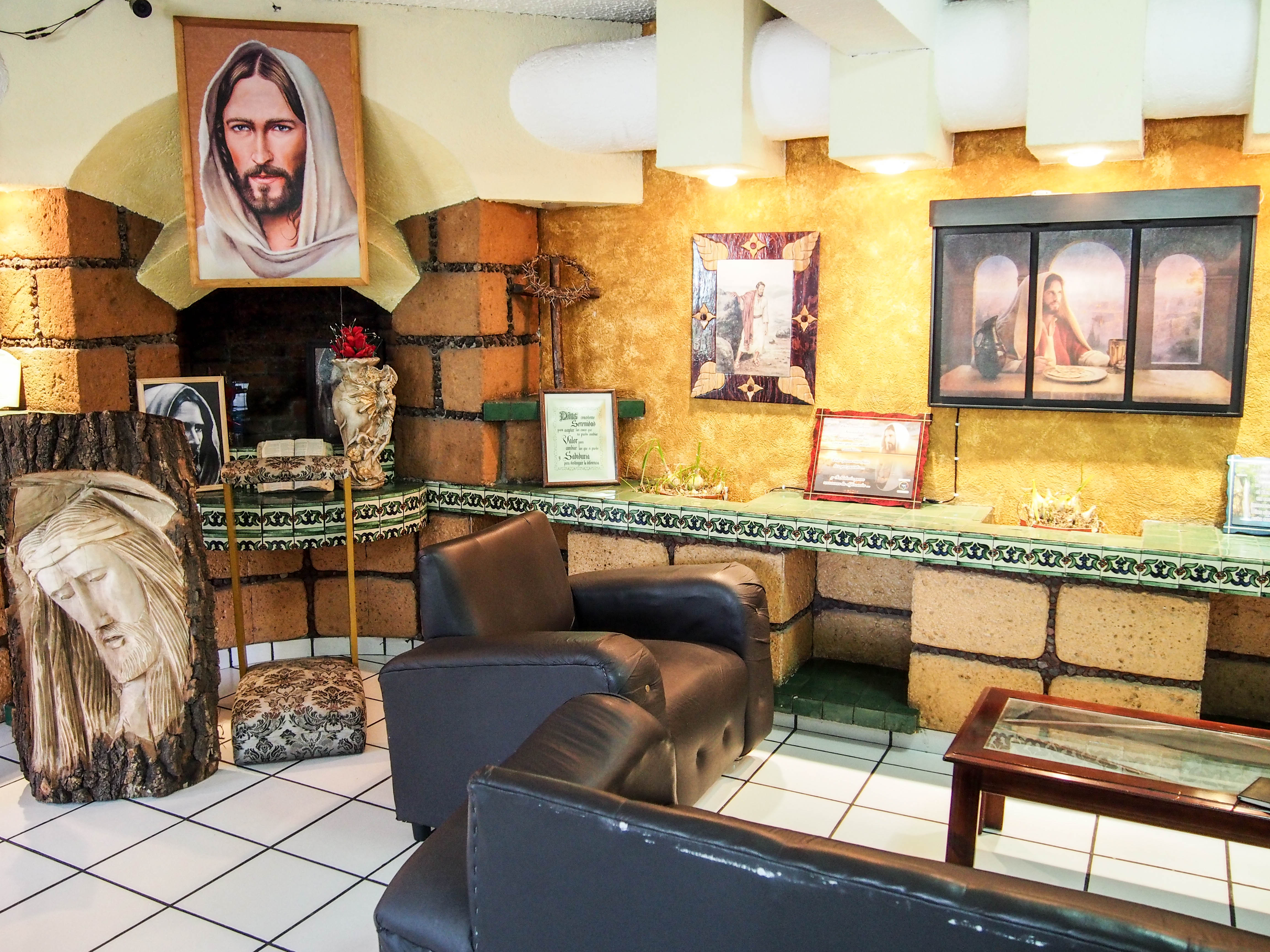
One anexado says that during a stay at another center in 2013 he was dressed up as a woman for three days and made to sit in a chair constructed from wire. By the end of the third day, he says, the wire was cutting his skin, causing incredible pain. He claims it was common in that anexo to fill up a cup with water and sand, and whip the mixture out in a throwing motion. By the fourth time, his back would be covered in bruises from the torture.
‘If you wanted a bed, you had to suck dick’
Another man tells a story about his 2013 stay in a different anexo. He says that when they came for him, he was put in a straightjacket and beaten. He also claims they burned his testicles when he arrived, and that he still has the scars. He says the padrinos would terrorize the anexados with guns and sexually abuse the younger men. “If you wanted a bed, you had to suck dick,” the man says, visibly upset.
The Open Society Foundations report detailed allegations of sexual assault in a number of centers in Mexico, with one victim just 12 years old. Two anexados tell VICE News they have witnessed sexual assaults in other anexos, but say they do not occur in this one.
The Godfather of the Godfathers
Downstairs, on a Sunday afternoon, several families who have arranged visits with some of the anexados wait patiently on leather sofas for their loved ones to come downstairs. We walk past them into the office of the Padrino Chicarcon, a term that represents the head godfather of each center.
The Padrino Chicaron has slicked back hair, a number of gold caps on his teeth, and a shirt partially unbuttoned to reveal his chest hair. In his office, there is a TV showing footage from each of the surveillance cameras. He asks if we’d want to go to his barrio sometime — one of the roughest in Mexico state.
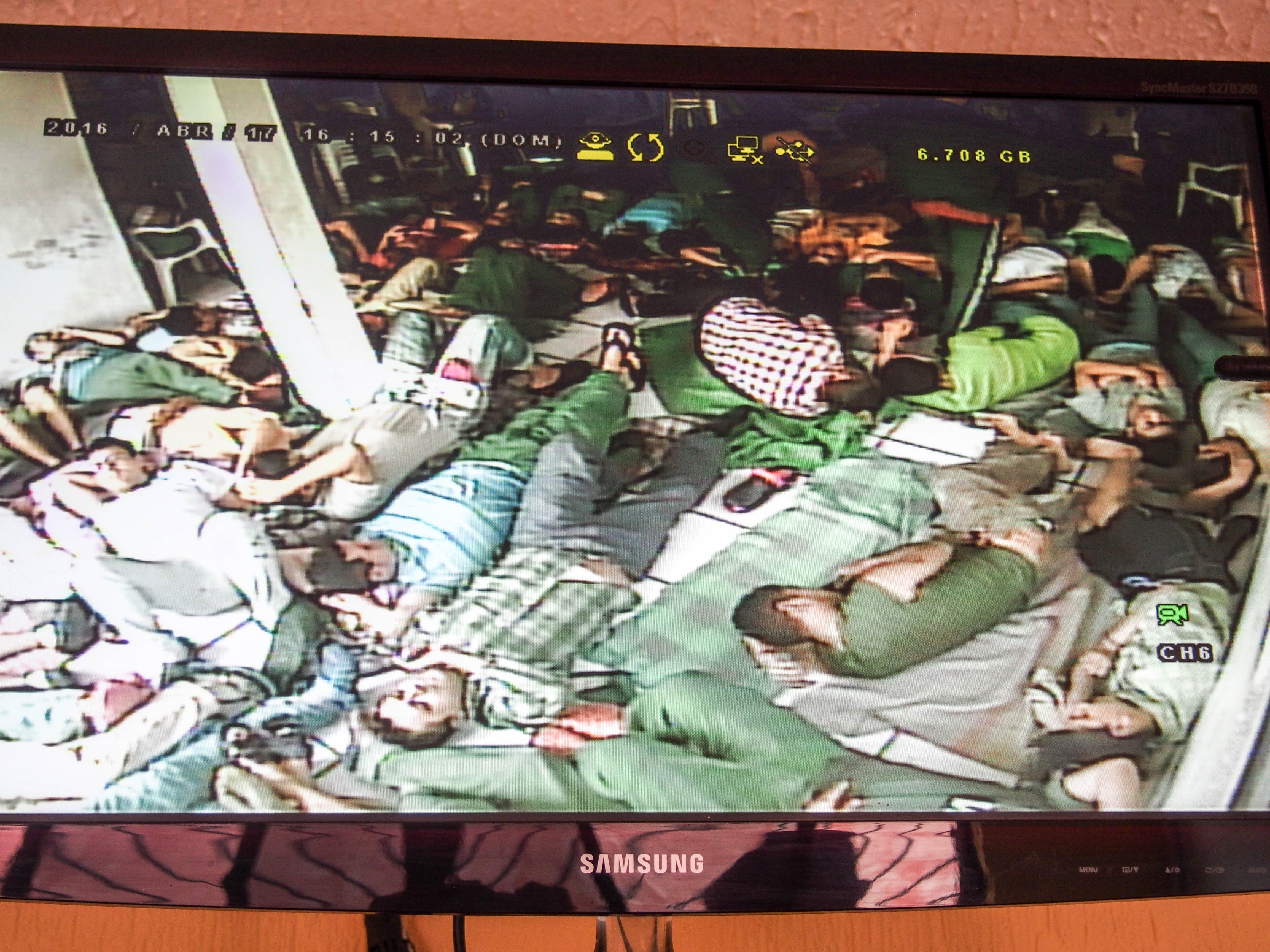
He doesn’t agree to be interviewed, but says I can speak to one of his underlings — the same padrino who listened to interviews earlier and called one of the anexados a liar.
“These are people with a lot problems,” the underling says as we sit in the office and he flips through the security cameras with evident pride. “They are not coming willingly to stay in this kind of place. But the family compels us because they are tired. Because of that we’re strict, difficult, when we go looking for them in the streets.”
‘This isn’t the house of their parents, this is the house of a padrino‘
His shirt is also partially unbuttoned, and his hair is also slicked back. “We like to give discipline,” he says firmly. “This isn’t the house of their parents, this is the house of a padrino.”
This is one of three anexos owned by this particular Padrino Chicarcon. The families of inmates pay 500 pesos a week, or roughly $28. The 17 padrinos make varying wages and many live rent-free in the house. The padrino we interview says he makes 350 pesos a day, about $20. All of the padrinos have been in an anexo like this before, when they were addicts.
Some of the inhabitants claim that the money their families pay does not go to their well-being. They allege that local markets donate free food to the center, along with other essentials like toilet paper and mattresses, but that the padrinos keep the best food for themselves, and the anexados eat little more than rotten vegetables, rice, and bread.
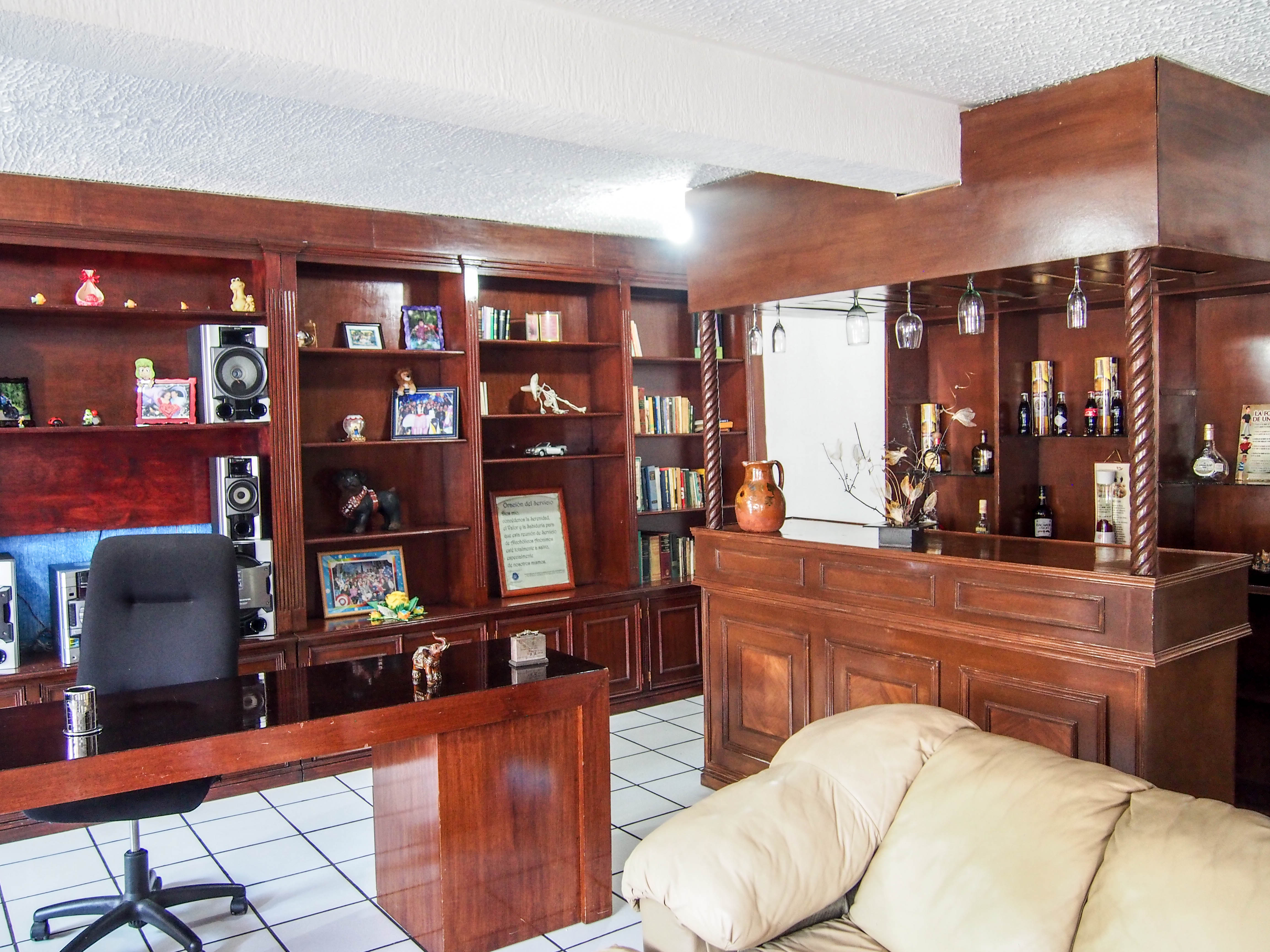
“This type of place, it’s a good business. You buy or rent a house, get some addicts, that’s it. You don’t even need beds, just a bunch of cheap mattresses,” says Sergio Covarrubias, a former addict who works to better the conditions in the anexos where he says he’s seen everything from rape to murder. “But they’re just replicating the same abuses they experienced, reinforcing a broken model.”
Related: Portugal’s Example: What Happened After It Decriminalized All Drugs, From Weed to Heroin
Covarrubias has been clean for six years — he is a padrino — though his methods center around therapy and not abuse. “They need to stop the physical and emotional violence, and stigmatizing the addicts,” he says. “They must listen, support, and provide more therapy that will strengthen the addicts for when they leave.”
The man who said his testicles were burned asks me to take his picture; he’s crying. He wants his family to see his face so they can know how truly sorry he is for everything he has done.
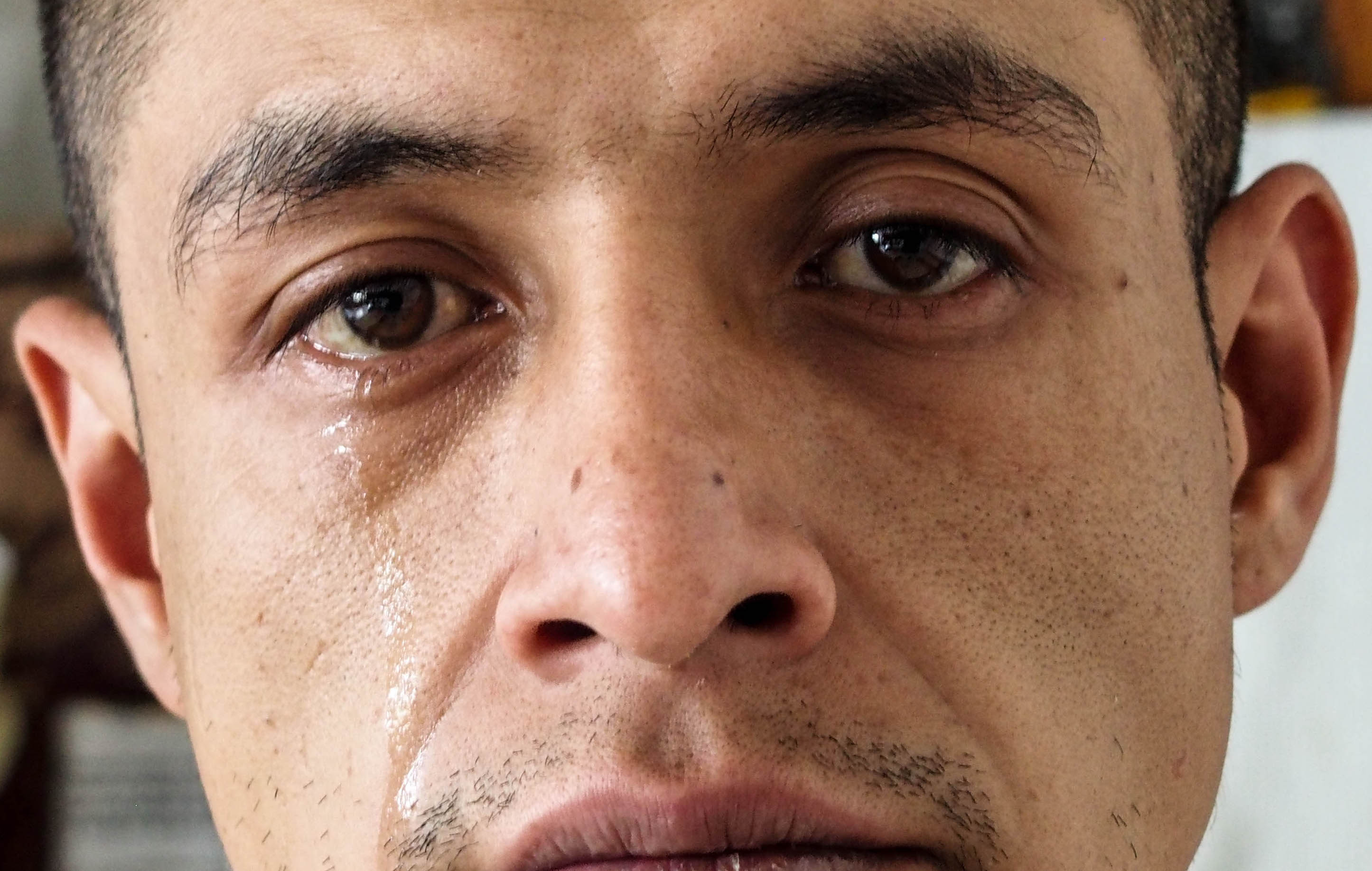
This is his twelfth time in an anexo and, after nearly one year, he expects to be released soon. He says his crack addiction has left him with nothing, but he has a plan for when he’s released so that he doesn’t become an anexado again.
“I want to change my life, to be a different person, I’m tired,” he says. “I’m going to have a clinic like this one, to help people, but with good treatment.”
Related: Poor Addicts Are Sharing Heroin-Laced Blood in Kenya’s Port City of Mombasa
Follow Nathaniel Janowitz on Twitter: @ngjanowitz
More
From VICE
-

The Embraer SA E175 into which United installed its first Starlink — Seth Herald/Bloomberg via Getty Images -

Miikka Skaffari/FilmMagic/Getty Images -

Alberto Pezzali/NurPhoto via Getty Images -

Manatū Taonga Ministry for Culture and Heritage
